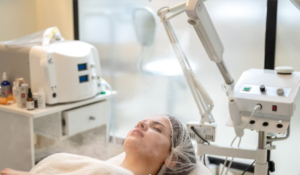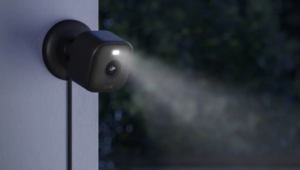Restless Sleep: Causes, Solutions, and Prevention
Restless sleep is defined simply as having trouble falling asleep through the night. Whether you find yourself tossing and turning for longer than fifteen minutes while you try to wind down, or you’re unable to get an extended amount of sleep before you wake up and interrupt yourself, restless sleep can result in many short-term and long-term problems.
Restless sleep can result in everything from your physical to mental health. The lack of sleep you experience can also result in your physically taxing symptoms, such as decreased energy, frequent headaches, and even difficulty focusing.
When you’re trying to figure out how to go to sleep with ease, a couple of key tips can help transform your routine. By upgrading your sleep routine and helping yourself pick between a memory foam or hybrid mattress, you’re going to find it’s a lot easier to snooze with ease.
Why Do We Experience Restless Sleep?
According to statistics, between ten to thirty percent of adults in the United States experience some trouble sleeping in their lifetimes. Why is restless sleep so common amongst adults? A few common factors point towards potential reasons.
Here are a few of the most common reasons you might be experiencing a lack of sleep:
– Heightened stress: Poor management of stress or anxiety can often result in restless sleep.
– Caffeine addiction: Is the first thing you think about when you wake up in the morning a cup of coffee? Caffeine addiction can also result in poor sleep.
– Shift work: If you don’t have a set sleep routine, or your job requires you to be more engaged in shift work, then it’s likely the continual disruption of your sleep might lead to poor rest.
– Poor diet: An overreliance on junk foods can go a long way in interrupting your sleep routine.
What Is The Difference Between Restless Sleep & Sleeping Disorders?
When you’re trying to differentiate between restless sleep with a regular sleeping disorder, it’s important to note restless sleep can actually be a key symptom for many common disorders. Consulting your physician if you’ve experienced an extended period of restless sleep can help you figure out whether or not you’re actually experiencing something that needs medical intervention, or if a few sustainable lifestyle changes are all it’s going to take to get you to rest better.
If you begin to suspect your restless sleep is indicative of a deeper problem, try tracking your sleep to get a better understanding of where things are going wrong. You’re going to find yourself a lot more likely to see the patterns of your sleep as well as detect where things might be going wrong on paper.
How Do You Prevent Restless Sleep?
When you’re trying to prevent restless sleep, one of the key things to remember is that smaller, sustainable lifestyle changes can actually make a significant difference to the quality of your rest. When you’re trying to sleep better, it’s important you stick to a couple of key rules and tricks that are sure to work. Here are some of the most popular ways you can improve your sleep, and quick:
Replacing your mattress: If your mattress is older than ten years, it’s high time you think about replacing it with a better option for your comfort. When it comes to finding the most comfortable mattress for your sleep, it’s important you consider all your options.
Hybrid mattresses are a great option for restless sleepers. Most hybrid mattresses strike a great balance between comfort and support in the quality of their rest. So how do you pick the best hybrid mattress for your sleep? Most hybrid mattresses have layers of memory foam or other alternate types of foam, and are then coupled with an innerspring layer that adds structure to your bed.
The best hybrid mattresses have minimal motion transfer, still remain plush enough to rest on.
Hybrid mattresses will also have technology that makes them the best cooling mattresses, which prevents you from overheating on the bed. This balance and versatility are exactly why hybrid mattresses are recommended to so many restless sleepers.
Finding healthy sleep hygiene habits: When it comes to restless sleep, understanding that it takes time to find a sleep routine that works well for you is key to getting better. A healthy and functioning sleep hygiene can look different depending on the type of person you are.
Some common sleep hygiene habits that can improve your schedule overall include:
- Staying away from your phone and other devices: the blue light present in our phones can have a disruptive impact on overall sleep, leading to a higher chance of restless sleep. To be safe, try and keep a cut-off time for using your phone and other devices in order to achieve a good night’s sleep.
- Use relaxation techniques for deeper sleep: When it comes to restless sleep that is caused by sleep anxiety, relaxation techniques that are grounded in spiritual practice are key to ensuring a good night’s rest. These techniques can be as simple as deep breathing, to more complicated techniques such as visualizing, using grounding techniques, or just trying to meditate on your own.
- Keep your sleep schedule as consistent as possible: Your body relies on a schedule to know when it is time to wake up and wind down everyday. Without consistency, however, this schedule gets disrupted, resulting in a poor night’s sleep.
- Revamp your bedroom: A hybrid mattress is just the beginning – use comfy bedding, cozy lighting, and a personalized touch to make your bedroom feel as homely as possible.
Whether it’s by thinking about your sleep hygiene, or trying to work out how you’re going to find a hybrid mattress that’s the right fit for your sleeping position, understanding that restless sleep is totally natural and solvable, can help you achieve a good night’s sleep.
Learning how to go to sleep after a bad spell of sleep might seem impossible or demoralizing, but with the right environment, and habits that keep you comfy, you’re going to feel a lot better soon.





